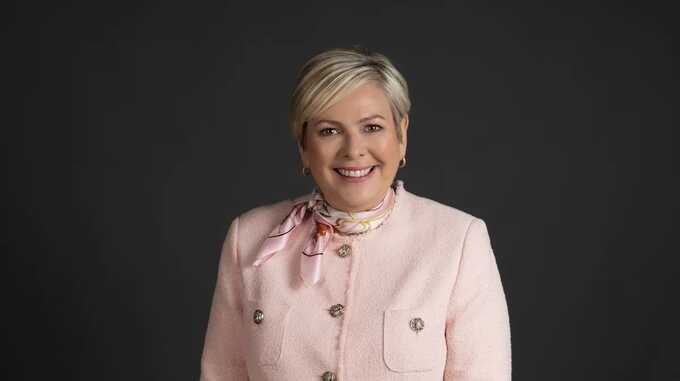Halla Tómasdóttir to be sworn in as Iceland’s seventh president
Finance entrepreneur becomes second woman to be elected head of state since independence in 1944
A feminist entrepreneur who started an investment fund with the musician Björk at the height of Iceland’s 2008 financial crisis and gave a TED talk on applying “feminine values” to finance is to become her country’s president on Thursday.
Halla Tómasdóttir won just more than 34% of the vote in elections in June, beating a crowded field that included Katrín Jakobsdóttir, who resigned as prime minister to run.
She will replace Guðni Th. Jóhannesson, who despite considerable popularity is stepping down after eight years in office.
Halla was previously the chief executive of The B Team, a non-profit co-founded by Sir Richard Branson. She was also the head of Iceland’s chamber of commerce and co-founded the now defunct financial services company Auður Capital. She first ran for president eight years ago.
This time the 55-year-old campaigned on issues including artificial intelligence, tourism and the effect of social media on mental health. Afterwards, she said that people had “voted with their hearts”.
“Generational equality is important to me. The issues I have put to the forefront in my campaign are because I want the next generation to take over a society and a country that gives them at least equal opportunities to those we have enjoyed,” Halla told the Icelandic news website mbl.is.
But she has also attracted criticism after appearing in a Facebook post of a car dealership where she bought an electric car. In a statement last week, Halla said she did not receive a discount in return for publicity – but that she did receive a discount – and that the picture was shared without her knowledge.
For his final reception at Bessastaðir, the official residence of the president of Iceland, on Tuesday, Guðni invited 300 workers who were involved in the construction of defence walls and other infrastructure on the Reykjanes peninsula after a series of volcanic eruptions near the town of Grindavík.
In June, he held an “open house” for members of the public to see inside Bessastaðir.
Halla will become Iceland’s seventh president since the formation of the republic in 1944. She will be the second woman in the role after Vigdís Finnbogadóttir, who in 1980 became the world’s first democratically elected female president.
The inauguration will begin with a religious service at Reykjavík Cathedral followed by a ceremony in the Icelandic parliament next door, where Halla will be sworn in before addressing the nation.
The event, which starts at 3.30pm local time, is to be attended by previous presidents, members of parliament and the media. It will be also be screened outside for the public.
While Icelandic presidents are elected heads of state, the role is largely seen as ceremonial. They do, however, play an important symbolic role for the nation of about 400,000 people, particularly after the recent volcanic eruptions.
“We are still in the thick of it,” Guðni told the Guardian in February. “As we speak now, land is rising close to Grindavík, and it’s a clear sign that magma is gathering right under the surface of the Earth. And soon, based on the experience of the last few years, it will find its way up.”
Read more similar news:
Comments:
comments powered by Disqus


































